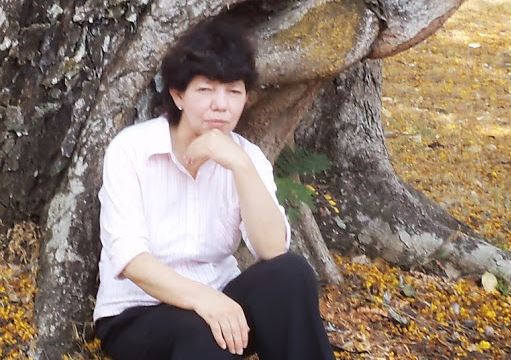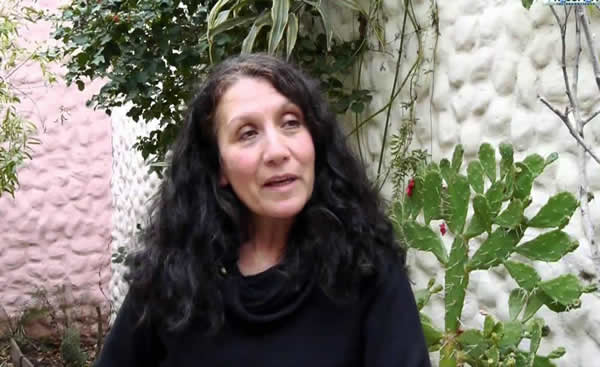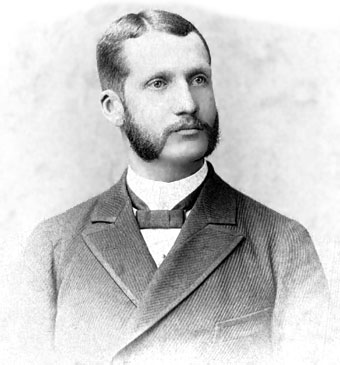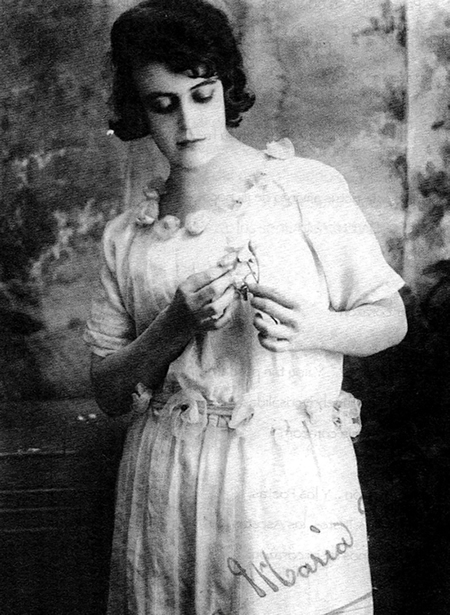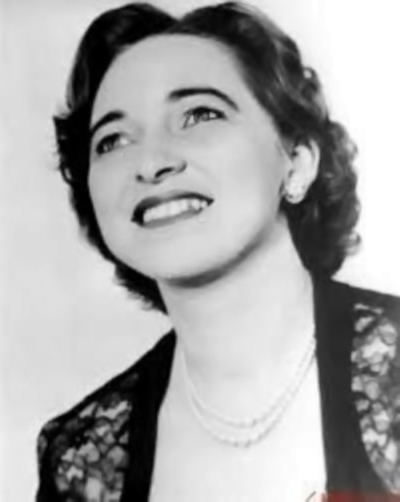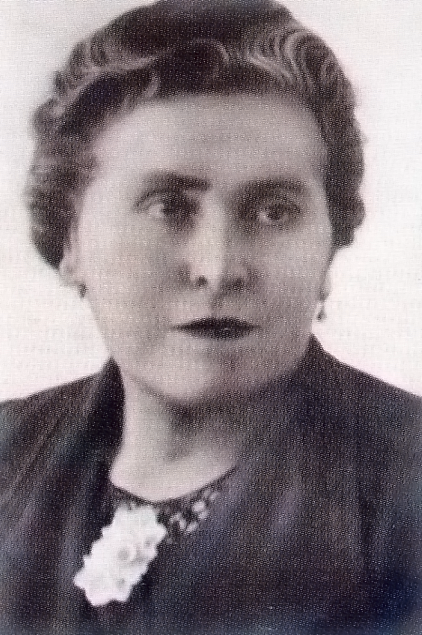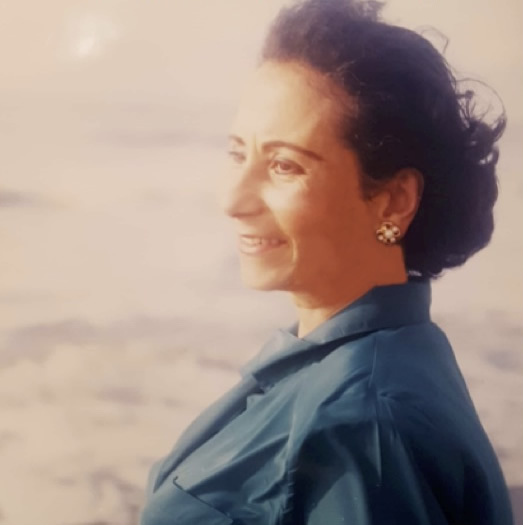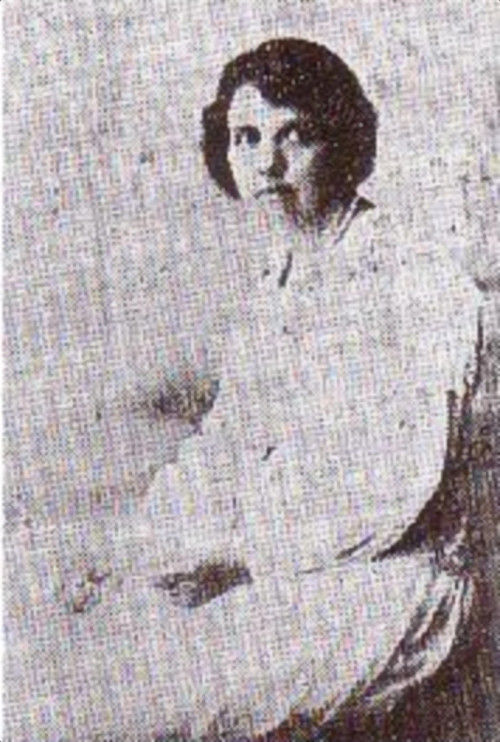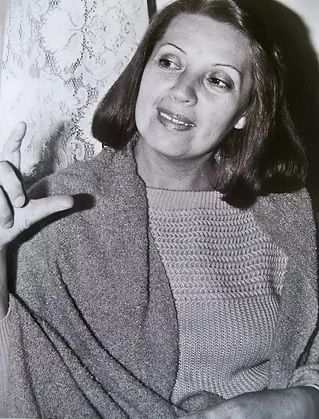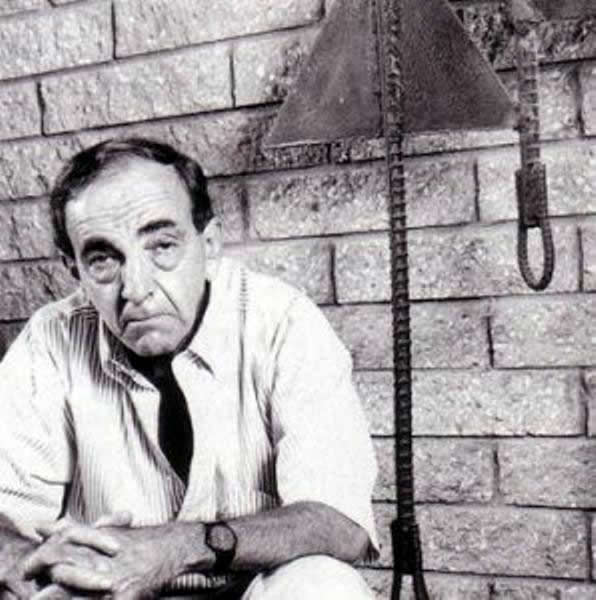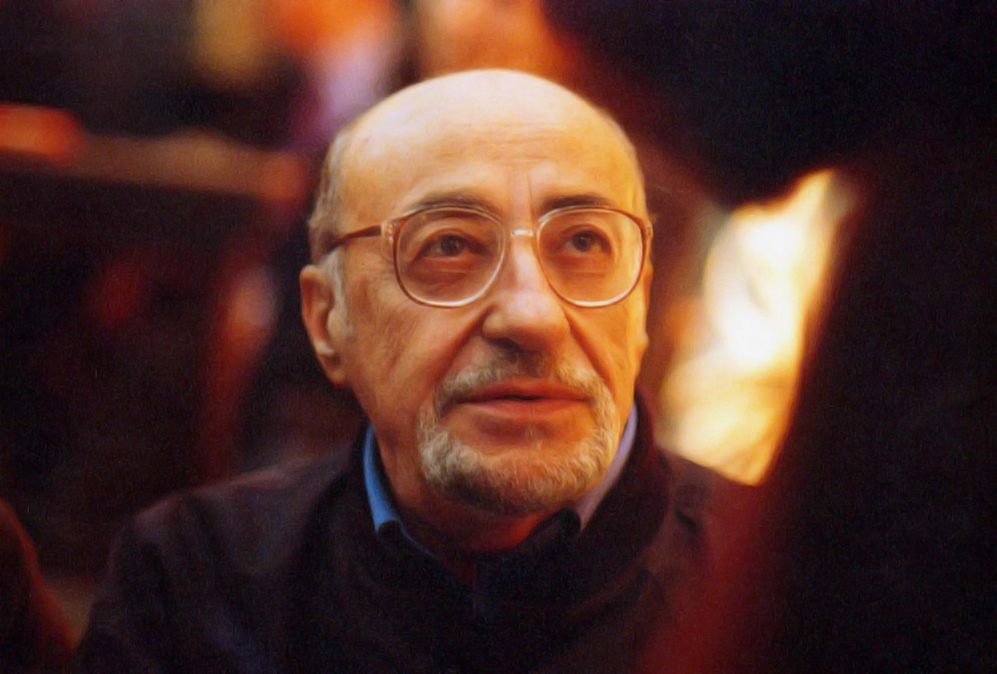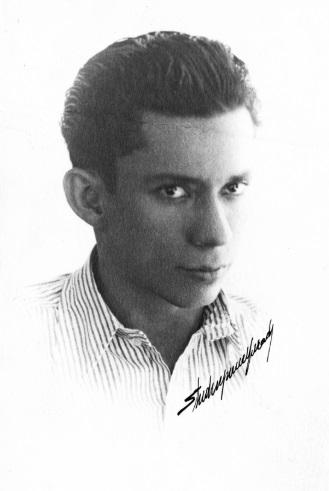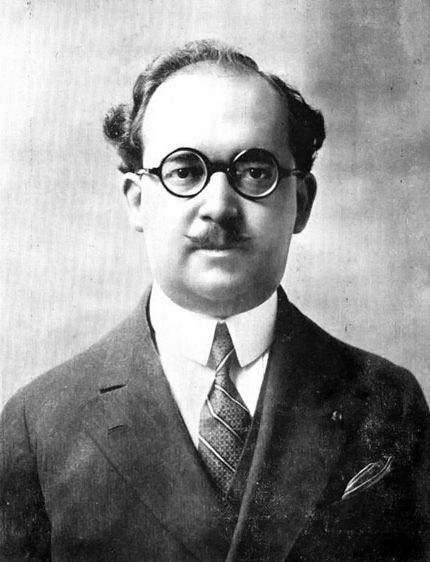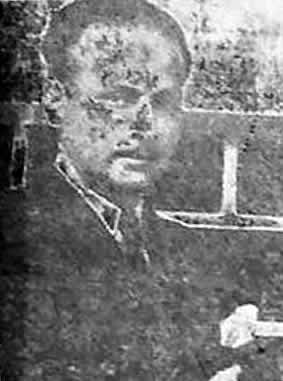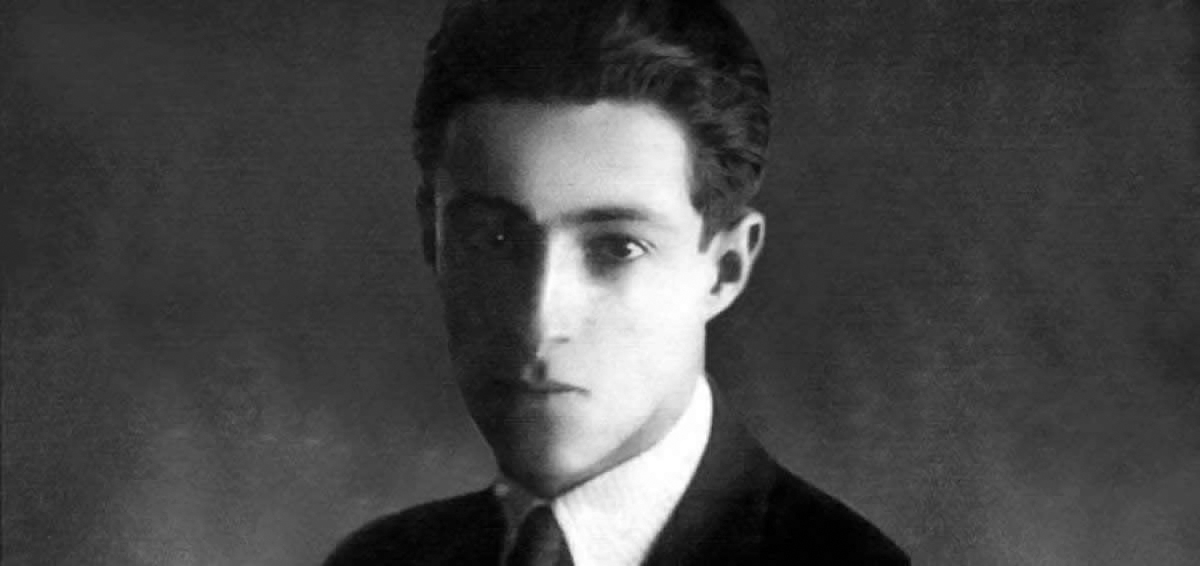Sara Vanégas Coveña (Cuenca, October 19, 1950) is an Ecuadorian poet, writer, and teacher. She received a scholarship to attend the Goethe Institute in Munich in 1971, where she earned a doctorate in Germanistics. She has taught at the University of Munich and Bielefeld University, and is currently a professor at the Universidad del Azuay in Cuenca. She has been recognized as a Universal Ambassador of Peace and as a corresponding member of the Asociación Prometeo de Poesía, an organization based in Madrid. Coveña is a two-time winner of the Jorge Carrera Andrade National Poetry Prize, receiving the award in both 2000 and 2004.
Continue reading “Sara Vanégas Coveña”Category: 20th Century Writers
María del Carmen Garcés
María del Carmen Garcés is a writer, translator, journalist and historian. She was born in Latacunga in 1958. She has lived in Bolivia, Argentina, United States, Cuba and Chile. One of her best known books is Conversaciones con Pombo: Combatiente de la guerrilla del Che en Bolivia (2011), about her conversations with Harry Villegas Tamayo, aka Pombo, a guerilla fighter who accompanied the revolutionary Che Guevara in Bolivia.
Continue reading “María del Carmen Garcés”Remigio Crespo Toral
Remigio Crespo Toral was an Ecuadorian poet and writer. He was born in Cuenca on August 4, 1860 and died In the same city on July 8, 1939. In 1905, President Leónidas Plaza Gutiérrez appointed him lawyer of the Republic, to defend Ecuador in its diplomatic conflict with Peru. In 1909, in the centennial of the first cry of independence, Crespo Toral published a book titled Cien años de emancipación. In 1917, he was crowned national poet, by decree of the President Alfredo Baquerizo Moreno, in the Central Park of Cuenca. This was a very important ceremony, which was attended by the entire city, including senior officials like President Baquerizo Moreno, the Ambassadors of the United States, Belgium, Chile, Peru, among others. In 1925, he was appointed Rector of the University of Cuenca, holding this post until his death.
Continue reading “Remigio Crespo Toral”Mary Corylé
María Ramona Cordero y León (pen name Mary Corylé) was an Ecuadorian poet, journalist, playwright, researcher and teacher. She was born in Cuenca on May 21, 1894 and died in the same city on May 7, 1976. She wrote many poems, lyrics for hymns and pasillos (traditional music of Ecuador), and also wrote plays. Among her many accomplishments, she founded the Municipal Library of Cuenca. Before her death, she donated all her works to the Remigio Crespo Toral Museum in Cuenca. Among Corylé‘s most famous poems is Bésame (1925), which critics consider one of the most erotic Ecuadorian poems of the early 2oth century.
Continue reading “Mary Corylé”Carmen Acevedo Vega
Carmen Acevedo Vega de Idrobo (Guayaquil, July 16, 1913 – Guayaquil, April 28, 2006) was an eminent Ecuadorian poet, writer, and journalist whose literary career spanned several decades. Known for her profound and lyrical verses, Vega delved into themes of social justice, womanhood, and the human condition, making significant contributions to Ecuadorian literature and culture. Through her work in journalism and membership in various cultural and journalistic institutions, she played a pivotal role in the cultural landscape of Ecuador. Vega’s dedication to exploring complex social themes and her involvement in literary and cultural circles have cemented her legacy as a key figure in Ecuadorian literature.
Continue reading “Carmen Acevedo Vega”María Angélica Idrobo
María Angélica Idrobo (July 29, 1890 – February 26, 1956) was a prominent Ecuadorian educator, writer, and pioneering women’s rights activist. Educated in Quito and further trained in Argentina and Uruguay, she excelled in pedagogy, founding notable institutions like Liceo Ariel, Fernández Madrid, and Simón Bolívar. Alongside Zoila Ugarte, Idrobo established the “Sociedad Feminista Luz de Pichincha,” advocating for women’s empowerment. She also created schools for women, significantly contributing to female education. Her literary work, including “Homenaje a las Madres,” reflects her deep commitment to social issues. Idrobo’s enduring legacy continues to inspire in Ecuador’s cultural and educational spheres.
Continue reading “María Angélica Idrobo”Luz Argentina Chiriboga
Luz Argentina Chiriboga Guerrero is an Afro-Ecuadorian poet, novelist and short story writer. She was born in Esmeraldas on April 1, 1940. Her works are concerned with Afro-Hispanic cultural identity and themes about women’s challenges. She is a member of the House of Ecuadorian Culture. Several of her novels have been translated into English, Italian and French.
Continue reading “Luz Argentina Chiriboga”Elysa Ayala
Elysa Ayala González, sometimes spelled Elisa Ayala González (Guayaquil, 1879 – 1956) was an Ecuadorian writer and painter. She was Ecuador’s first fiction writer and the first woman to write stories about montubios, the poor and simple peasants from Ecuador’s coast. Because of the sexist and conservative climate in Ecuador at the time, Elysa’s early works appeared mostly in foreign magazines, such as Nubes Rosadas and Revista Argentina (Argentina), Sucesos and El Nacional (Chile), Adelante (Uruguay), Hero and Cosmos (Cuba), América (the United States), and La Voz de Valencia (Spain). In Ecuador, her stories appeared in La Ilustración and some other magazines. Being fluent in English and French, she translated some of her stories into these languages. It should be noted that part of her literary work remains unpublished, including a novel about the peasant class, which was her preferred motif.
Continue reading “Elysa Ayala”Violeta Luna
Morayma Violeta Luna Carrera is an Ecuadorian poet, essayist, journalist, literary critic, professor. She was born on February 24, 1943 in Guayaquil. She is a member of various organizations, including the Press Circle of Ecuador, the Society of Ecuadorian Writers, and the House of Ecuadorian Culture.
Carlos Béjar Portilla
Carlos Béjar Portilla is a science fiction writer and poet. He was born in Ambato on February 17, 1938. He is considered an important storyteller of the 1970’s Ecuador. In 1982 he was declared a founding member of the “Society of Writers of Ecuador.”
Continue reading “Carlos Béjar Portilla”Jorge Enrique Adoum
Jorge Enrique Adoum, or Jorgenrique Adoum (Ambato, June 29, 1926 – Quito, July 3, 2009) was an Ecuadorian poet, novelist and playwright. Adoum is best known for his poetry collections and his celebrated novel Entre Marx y una mujer desnuda (1976). He is regarded as one of Ecuador’s most important writers and intellectuals of the 20th century. Nobel Prize winner Pablo Neruda hailed Adoum as “the best Latin American poet of his generation.” An English translation of Adoum’s poetry was published by Katherine M. Hedeen and Víctor Rodríguez Núñez under the title “prepoems in postspanish and other poems” (Action Books, 2021). This collection includes three of Adoum’s most groundbreaking books: “Currículum mortis” [Curriculum Mortis] (1973, 1979), “prepoemas en postespañol” [prepoems in postspanish] (1973, 1979), and “El amor desenterrado” [Love Disinterred] (1993). In 1989 the President of Ecuador conferred on Adoum Ecuador’s highest literary prize, the Eugenio Espejo Award, for his lifetime of literary work.
Continue reading “Jorge Enrique Adoum”Joaquín Gallegos Lara
Joaquín Gallegos Lara (Guayaquil, April 9, 1909 – Ibidem, November 16, 1947) was an Ecuadorian novelist, short story writer, poet, and literary critic. His works often reflected the social and political issues of his time, including poverty, inequality, and injustice. He was a member of the Communist Party of Ecuador and was imprisoned many times for his political convictions. Lara was born with Pott’s Disease, a rare spinal disease which caused paralysis in his legs. Due to his inability to walk, he was unable to attend school and instead devoted himself to self-study at home, in which time he mastered the French, German, Italian, and Russian languages. He was a member of the “Guayaquil Group,” and has been described as the group’s spiritual leader. The book of short stories “Los Que Se Van” [Those Who Leave] (1930), co-authored with Demetrio Aguilera Malta and Enrique Gil Gilbert, marked the beginning of literary social realism in Ecuador. His most famous novel, “Las cruces sobre el agua” [Crosses on the Water] (1946), is concerned with the November 15, 1922 massacre of striking workers in Guayaquil. Despite his brief life, Joaquín Gallegos Lara’s works are still widely read and continue to be studied and recognized for their profound impact on Ecuadorian literature.
Continue reading “Joaquín Gallegos Lara”Homero Viteri Lafronte
Homero Viteri Lafronte (Ambato, January 24, 1892 — Santiago, Chile, November 10, 1976) was an Ecuadorian writer and historian whose published works include historical monographs and conference papers. He earned a jurisprudence doctorate from the Central University of Ecuador. In 1949 he was the head of the Ecuadorian delegation to the U.N. in Lake Success, NY. He was several times President of the Legal-Literary Society of Quito and belonged to several national and international institutions, and also served as the deputy director of Ecuador’s National Academy of History.
Continue reading “Homero Viteri Lafronte”Marco Antonio La Mota
Marco Antonio La Mota was an Ecuadorian journalist, poet and short story writer. He was a staff writer for the newspaper El Telegrafo. He was born in Guayaquil, Ecuador. The date of his birth is unknown; it is known he died in 1946. In 1941 La Mota published a book of short stories titled Las huellas de una raza with a foreword by Joaquín Gallegos Lara (1909-1947).
Continue reading “Marco Antonio La Mota”Pablo Palacio
Pablo Palacio was an Ecuadorian avant-garde writer. He was born in Loja on January 25, 1906 and died in Quito on January 7, 1947. In 1925 he earned a degree in jurisprudence from the Central University of Ecuador. He served as professor of philosophy and literature at the same University, as an Undersecretary of the Ministry of education (when it was led by Benjamín Carrión), and as Undersecretary of the National Constituent Assembly in 1938. He is best known for his novels Débora (1927), Vida del ahorcado (1932) and his short story collection Un hombre muerto a puntapiés (1927). His work has been praised for its originality and its contribution to the development of Ecuadorian literature. In 1939, he began to suffer from mental disorders and soon after was declared mad. He spent the last seven years of his life in a psychiatric clinic accompanied and cared for by his faithful wife, who volunteered as a nurse in the same clinic to be able to cover the costs of treatment.
Continue reading “Pablo Palacio”
